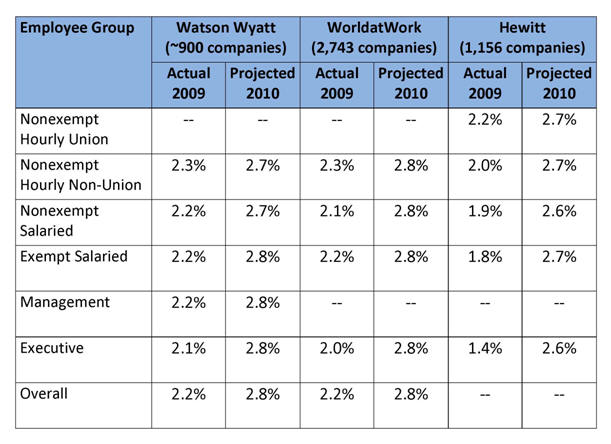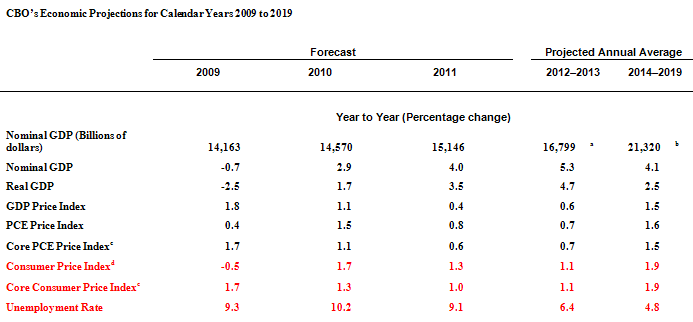
|
Fact!! Cats have a hearing frequency higher than that of humans and dogs. They can hear up to 64 kHz…1.6 octaves above human hearing and 1 octave above dogs.
On Tuesday, September 29th, Astron will sponsor the CUPA-HR NY Metro Chapter’s first meeting of the year on “Integrating Compensation, Performance Management, and Career Development.” National Director Jennifer Loftus will be on hand to meet the attendees and enjoy the sure to be robust panel discussion. October 4 – 6th finds Jennifer in Washington, DC at the Non-Profit Human Resources Conference. Jennifer will be moderating a roundtable discussion on HR issues in healthcare organizations on Sunday evening. She will also present a concurrent session Monday afternoon on total rewards. For more information on attending the information packed three-day conference, please visit http://www.nonprofithr.com/Registration.html. Stay tuned for more stops! Our Road Show continues strong into October.
 2010 Salary Budgeting Forecast – What a Difference a Year Makes 2010 Salary Budgeting Forecast – What a Difference a Year Makes
Remember way back to November 2009? For many, it seems like a lifetime ago. One Astronology article stated the following with respect to compensation planning: First, most organizations want to hold the line on their 2009 compensation planning budgets of 3.0% - 4.0%, depending on the industry, if at all possible. The danger with a dramatic compensation budget reduction is the potential of losing any competitive advantage when the economy experiences an upturn. What a difference a year can really make. 2009 has clearly been the year of the “Great Recession,” having a dramatic impact on how we view compensation budgeting and administrations. Many of Astron’s clients have experienced severe layoffs as well as hiring and compensation freezes. As we look to 2010, there is a spirit of optimism. Beginning in late July, 2009, many started to feel that we had seen the worse and that we now have to prepare for the “Great Recovery” of 2010. With this background, let’s take a peek at what the “experts” are saying about 2010 compensation budgeting. Here is a summary of salary budget increases from three major survey organizations:
For a more global perspective, Culpepper provides the following tracking information:
A just released Business & Legal Reports Survey reports the following: In BLR’s 2009 Pay Budget Survey (conducted last summer), employers had reported that their average planned merit pay increase for 2009 was 3.71%—but in October 2008, BLR® conducted a follow-up survey in which employers reported that their average planned merit increase for 2009 had dropped to 2.8%. The 2010 survey results indicate that economic conditions deteriorated much further than employers anticipated. This is further evidenced by the fact that nearly 54% of respondents to this year’s survey indicated that they gave no (zero percent) merit increases in 2009! Meanwhile, according to the 2010 survey, the average planned general increase for next year is 1.27%, compared with 1.12% given in 2009. Nearly 1,600 organizations participated in the survey, which was conducted in June and July of 2009. To help put this all into perspective let’s look at the latest Congressional Budget Office economic projections:
Astron Solutions’ advice from November, 2009 still applies, with some minor modifications in planning in 2010. What should organizations do to successfully recruit and retain employees in the new economy?
1. Bring staff that have had pay or hours reduced back up to where they were in the beginning of 2009. If all employees cannot be adjusted at once, focus first on mission critical staff.
While no one has a crystal ball that will shed light on exactly what to expect in 2010, our hope is that business conditions will noticeably improve. We will continue to keep you, our readers, apprised of important trends and compensation changes for the coming year, to help you make the most informed decisions possible.
 Time Management: How to Become a To-Do List Conqueror Time Management: How to Become a To-Do List Conqueror
Do you always perform at your peak? Do you always provide ample support and attention to the projects and people in your life? Do you always finish your work and leave your job at the end of the day with a clean desk and an agenda for the next day? If you have answered “yes” to all these questions, congratulate yourself and move on to another article. If for any reason you answered “no” to one or more of these questions, or you feel that life has gotten out of control, there’s no need to worry. Time management is a skill, a technique, a mindset, and a lifestyle that can be adopted by you if you have the desire--
Your success depends upon utilizing a time-management system that works best for you as well as one that addresses your attitudes, feelings, and habits. If you don’t focus on what you value and what your goals are, any success you might achieve will be short-term. If you think about the concept of time management, it is actually an oxymoron. There really isn’t anything to manage. There are a fixed number of days in a week, hours in a day, and minutes in an hour. The only thing that changes about how you spend your time is your perception of it. Some days you are a conqueror and can complete everything on your to-do list while, at other times, you can probably barely get through the first few items on it. If you were to look back at your “conquering” days, you would see the projects/tasks that you completed were directly related to your goals, which put your achievement level into high gear and time sped by. So, how do you become a “conqueror” of tasks and projects? When you’re able to define your purpose, establish your vision and values, and develop success-oriented attitudes, a direction and meaning to your life will begin to emerge. The best way to decide what you want and to set goals is to have an understanding of yourself, by examining past accomplishments and identifying your strongest and most enjoyable skills. Although your motivated abilities tell you the elements needed for happiness, a vision needs to be created to help you shape the scope of what lies ahead. The dreams and goals from your vision of the future are the driving forces that motivate you. A clear vision accompanied by WHY SMART (Written Harmonious Yours Specific Measurable Attainable Realistically High Time–Bound) goals will enable you to prioritize options and make good decisions. By activating positive thoughts and embracing the power of visualization, you bring about the necessary behavior that will help you accomplish all that you want in your life. Successful people have a passion for what they do and have set predetermined goals that are harmonious with the vision they have created for themselves. One of the most important concepts of time management is to understand and acknowledge the difference between spending time and investing time. The definition of spend, according to the dictionary, is “to use up, exhaust, consume.” However, when you invest your time, you do so with the expectation of some sort of ROI, return on investment. If you were to attach the value you put on money to the concept of time, you would be more motivated to manage it better. Time is like money. You can expect returns if you invest wisely and you can expect losses if you spend without purpose. The way you use your time is a reflection of who you are. Not only is it an indication of what you think about yourself, it also reveals what you think of others. Your focus on achieving the goals you have set for yourself is reflected in your use of your time. The way you allocate your time mirrors your purpose, your vision, and your values. Put focus on the activities that are harmonious with your personal goals and the goals of your organization. Each day set out to achieve the highest level of performance and gratification. By investing in your time wisely, you will reap significant rewards in every aspect of your life. Fundamentals of Time Management • Get organized. Set aside time and organize all paper and projects. Block the time on your calendar or PDA. • Three D’s – Delegate, Dump, Do. Get rid of anything that is not in alignment with your personal/professional goals. When paper comes in, create a filing system not a piling system.
• Delegate -- to the appropriate person.
• Do the Right Thing Right. Management expert, Peter Drucker says “doing the right thing right” (effectiveness) is more important than doing things right (efficiency). • Timing. Determine your most effective time of day and take advantage of your body’s natural clock to achieve your tasks. Decide the best time of day to plan out your day (typically, the night before is the better option). • Expand upon Your To-Do List. Break the tasks into “Must Do” and “Should Do” sections. • Plan for Interruptions. Build in buffer time. If necessary, take your phone off the hook, and post a ‘do not disturb’ sign on your cubicle wall if you don’t have an office door. • Make the most use of waiting time. • Make your meetings productive.
• Provide a written agenda and include the purpose and objectives of the meeting.
• Time Management at Home. Our professional and personal lives are intertwined, so use the same time management skills at home to help maintain control. Learn to say “no.” Taking on too much causes stress. Time management is not about managing time; it is about setting goals that align with your vision and purpose. Time management is a personal choice. Time is the great equalizer; we all have the same amount. The effective use of time depends upon your attitude, your goals, and your skills. Stacey M. Jerrold, MBA, SPHR is the founder of Jerrold HR Solutions LLC, a company that focuses on helping clients discover their untapped potential and turn that potential into performance. By "partnering" with her clients to identify their individual needs, Stacey and her team customize processes that enable clients to develop a substantial competitive advantage needed for their future success. Stacey is a Certified Business Coach and is also a member of The Five O’Clock Club Guild of Career Coaches. You can reach Stacey at Stacey@JerroldHRSolutions.com, or visit her website at www.JerroldHRSolutions.com
Reader Poll Archive
Wonder what your fellow readers think about critical HR
topics? Is your organization unique from or similar to
others?Click here to view the results of our past polls!
Coming Next Time to an
Astronology near you!
Have a Question?
If you have a topic you would like addressed in Astronology,
or some feedback on a past article, don't hesitate to tell
us! Simply reply to this e-mail. See your question answered,
or comments addressed, in an upcoming issue of Astronology.
Looking for a top-notch presenter for your human resource organization's meeting? Both Jennifer Loftus and Michael Maciekowich present highly-rated sessions on a variety of compensation and employee retention issues. For more information, send an e-mail to info@astronsolutions.com.
Are you reading a pass-along copy of Astronology? Click on
this button
Send inquiries to info@astronsolutions.com or call 800-520-3889, x105.
The Fine Print
We hold your e-mail address in trust. Astron Solutions
promises never to share or rent your personal information.
We also promise never to send you frivolous e-mails and will
allow you to leave our list, at your option, at any time.
To remove yourself from this list, please follow your personalized subscriber link at the bottom of your Astronology alert e-mail. Copyright 2009, Astron Solutions, LLC ISSN Number 1549-0467 |
||


